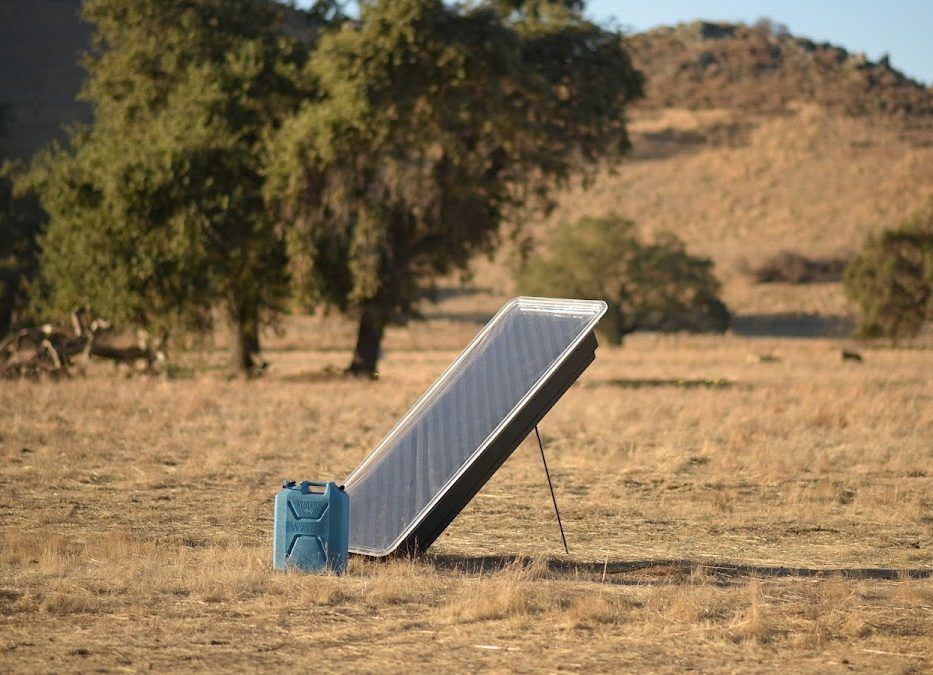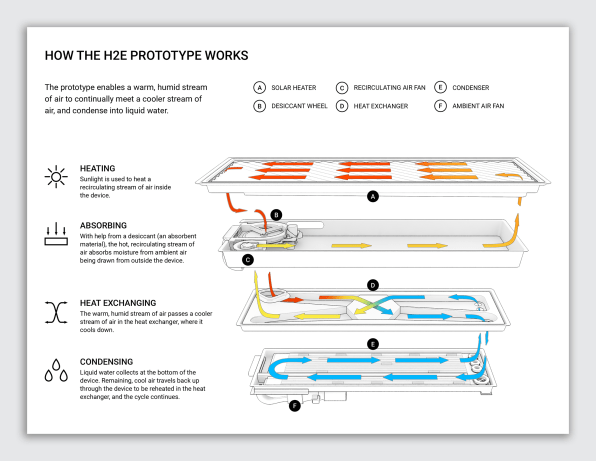
Alphabet’s X lab (a research and development laboratory founded by Google) has, during recent years, developed a technology that can provide people living in areas with the right climate, clean drinking water.
Fast Company reports that Alphabet’s new device known as atmospheric water harvester draws water from the air and transforms it into safe drinkable water using fans and heat from the sunlight to create condensation.
According to a study done using datasets from WHO/UNICEF, this type of technology could provide 1 billion people currently living without it, access to clean drinking water.
Alphabet’s technology is designed to be as cost-efficient and productive as possible. To achieve this, the device only uses a few solar cells to power the fans and relies mostly on heat from the sunlight.
The device is made up of a few parts, containing a fan that sucks air in from the outside and a desiccant that absorbs its moisture. There is also a second fan that recirculates another stream of air heated by the sun. After that, the warm air meets cool air inside the machine creating small water droplets. The whole process is very similar to how dew naturally forms in nature.

Right now the device is capable of producing 150 milliliters of water per hour and square meter. However, with further improvements – that’ll probably be done very soon thanks to the open-source, the technology has the potential to produce five liters of water a day. The team has recently opened access to documentations regarding the technology, so anyone can use the information to develop the device.
“We don’t always do this, but in this particular case, we felt like this had made enough of the right kinds of progress, had enough of the right kinds of potential, that sharing it with the rest of the world was actually going to get the benefits to the world faster than if we just kept it an X thing ourselves,” says Astro Teller, the head of X.
New and innovative technology benefiting people in need can help a brighter and more sustainable future come sooner.
Picture: Alphabets X-lab




